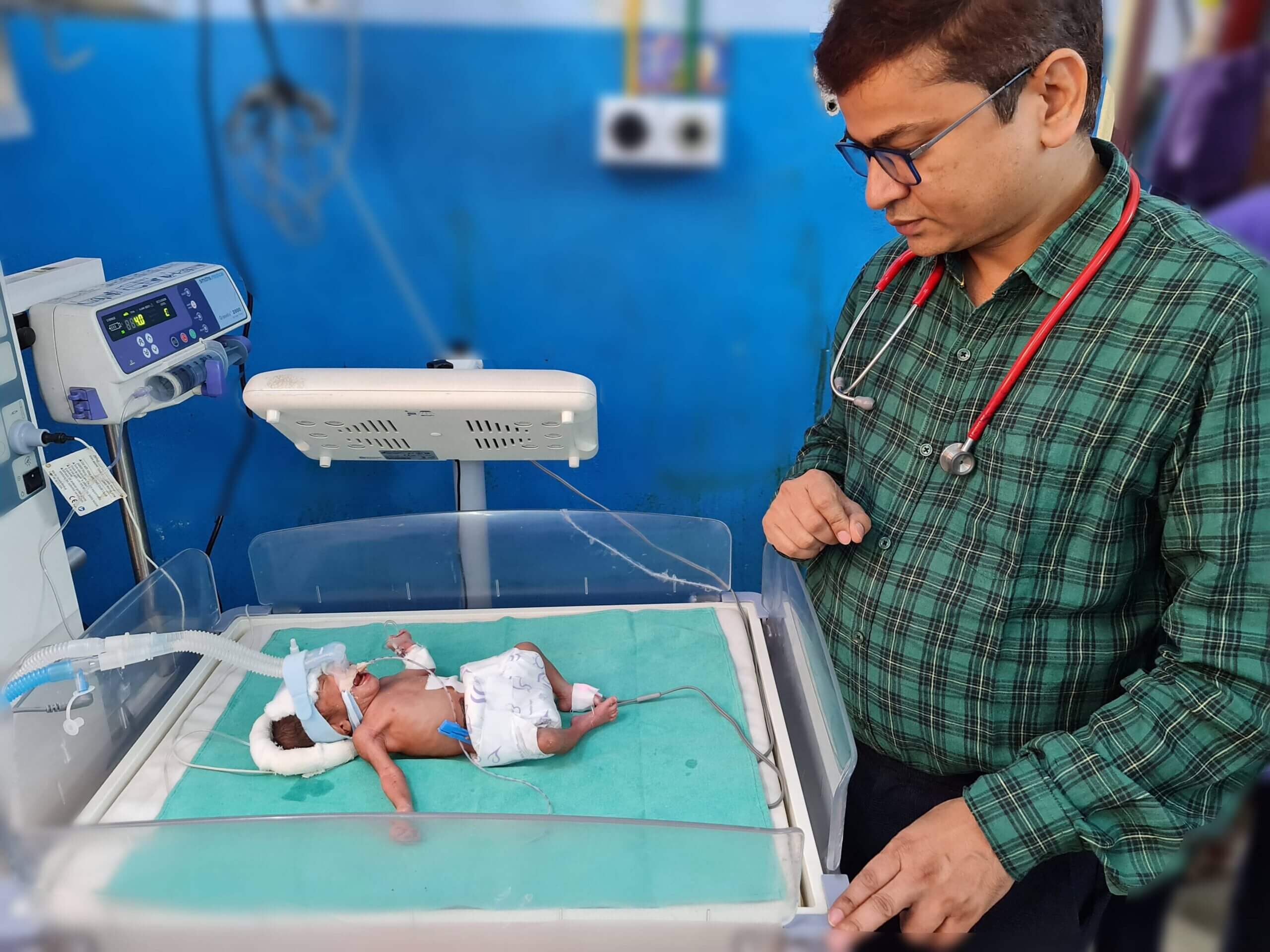In recent weeks, air pollution has reached alarming levels in various parts of India, including Delhi, Mumbai, and now Begusarai in Bihar. The Hazardous Air Quality Index (AQI) poses serious health risks, with potential consequences ranging from respiratory infections to heart diseases and lung cancer. Shockingly, Begusarai has joined the ranks of the most polluted cities in India, with its PM2.5 concentration exceeding the WHO-recommended limit by 11.1 times, making it a critical concern for authorities.
Beyond the well-documented health risks, a new and distressing revelation has emerged—air pollution is now suspected to be a cause of newborn deaths in Begusarai. Reports indicate a significant increase in premature child deliveries attributed to the heightened pollution levels. Dr Smriti Kiran, the Medical Officer of Begusarai Sadar Hospital, shed light on this concerning trend, revealing that women in the district are experiencing premature deliveries, with babies born before the completion of the usual 9-month gestation period.
Dr Kiran explained the intricate connection between pollution and premature births. Harmful gases and particles present in the polluted air enter the bloodstream of pregnant women, adversely affecting fetal development. This interference results in premature births, a phenomenon on the rise in Begusarai. Symptoms of this health crisis include difficulty in breathing, restlessness, and nervousness among pregnant women.
The key factors contributing to premature births:
1. Impact on Placenta Region: The placenta plays a crucial role in pregnancy by providing oxygen and nutrients to the developing fetus. When pollutants are present in the air, pregnant women inhale them, and these harmful substances can find their way into the bloodstream.
2. Increase in White Blood Cells (WBCs): White Blood Cells (WBCs) are a vital component of the immune system. In response to the presence of pollutants, the body may produce more WBCs as a defence mechanism. However, this increase in WBCs is not without consequences.
3. Obstruction in Blood Flow: The heightened levels of WBCs contribute to a physiological response that inadvertently obstructs the normal flow of blood, particularly in the placenta region. This obstruction can impede the seamless transfer of oxygen and nutrients from the mother to the developing fetus.
4. Impact on Blood Supply to the Fetus: The obstruction caused by the accumulation of WBCs affects the proper supply of blood to the fetus. This is a critical stage in fetal development, and any hindrance in blood flow can have severe consequences.
5. Stunting Child's Development: The fetus relies on a consistent and healthy supply of blood for its growth and development. When this supply is compromised due to pollutants causing an increase in WBCs and subsequent blood flow obstruction, the child's development is stunted. This stunting can manifest in various ways, including premature birth.
6. Early Maturation of Placenta: As a response to the impediment in blood flow, the placenta may mature prematurely. The placenta typically matures at a specific stage in pregnancy, ensuring that it provides the necessary support until full-term delivery. Premature maturation, triggered by pollution-induced complications, disrupts this natural timeline.
7. Prevalence of Premature Deliveries: With the placenta maturing too early, and the overall conditions for fetal development compromised, the incidence of premature deliveries becomes more prevalent. Premature births, occurring before the standard 9-month gestation period, pose significant health risks to both the newborn and the mother.
In light of these revelations, Dr. Smriti Kiran emphasized the critical need for pregnant women to protect themselves from air pollution. She recommended the use of masks whenever women venture outside their homes, highlighting the potential reduction in premature deliveries if this preventive measure is adopted widely. The doctor's insights underline the urgent necessity for public awareness and measures to combat the detrimental effects of air pollution on maternal and child health.
As pollution continues to pose a grave threat to communities, particularly in regions like Begusarai, the call for immediate action to mitigate its impact becomes more imperative than ever. Pregnant women, in particular, should pay attention to these warnings and take proactive steps to safeguard the health of both themselves and their unborn children. The battle against pollution demands collective efforts, awareness campaigns, and stringent measures to ensure a healthier and safer environment for generations to come

 Pregnant women, in particular, should pay attention to these warnings and take proactive steps to safeguard the health of both themselves and their unborn children. The battle against pollution demands collective efforts, awareness campaigns, and stringent measures to ensure a healthier and safer environment for generations to come.
Pregnant women, in particular, should pay attention to these warnings and take proactive steps to safeguard the health of both themselves and their unborn children. The battle against pollution demands collective efforts, awareness campaigns, and stringent measures to ensure a healthier and safer environment for generations to come.










.jpeg)











.jpg)








